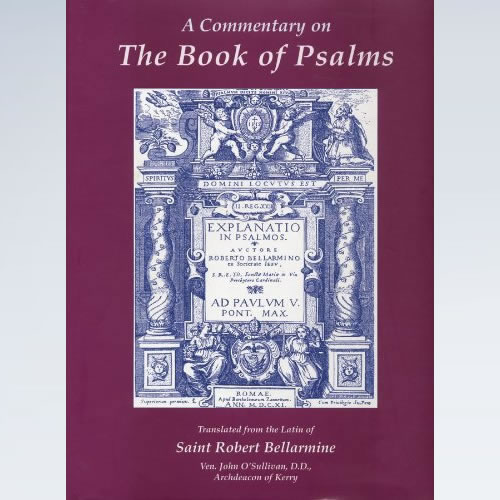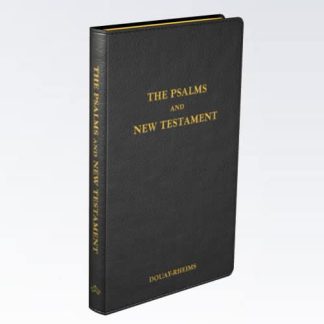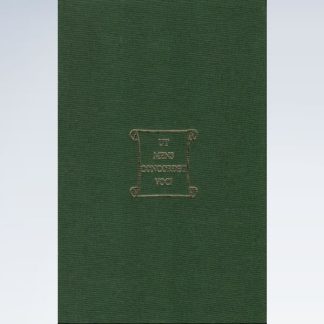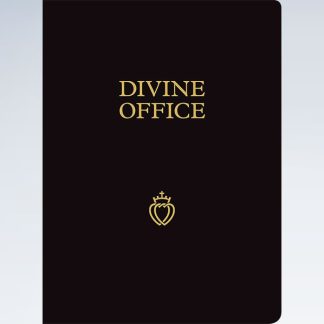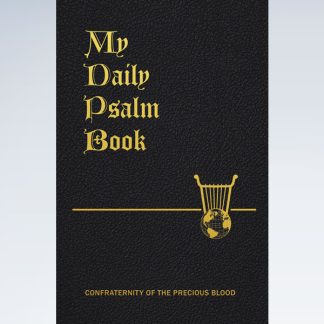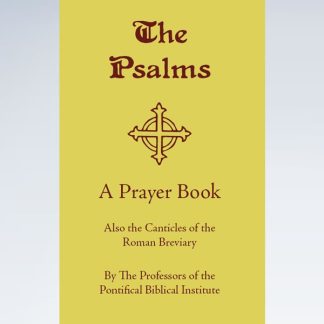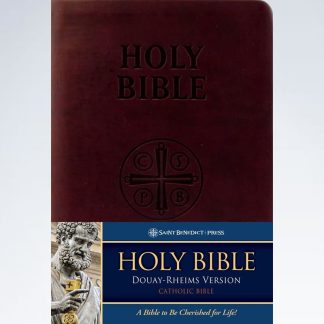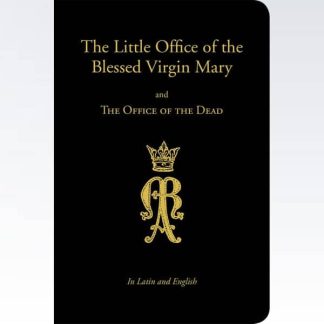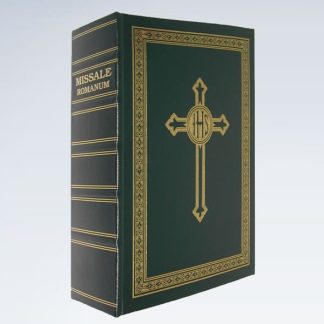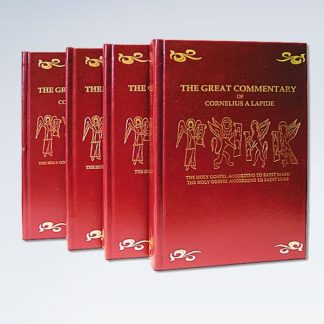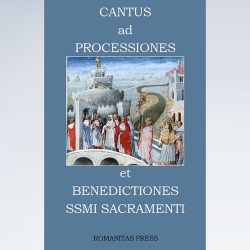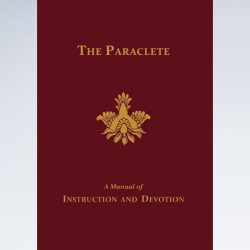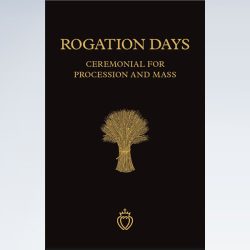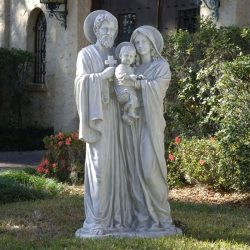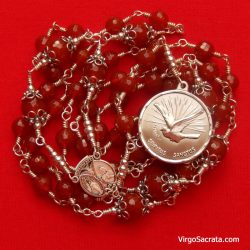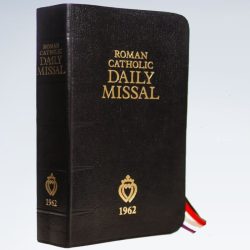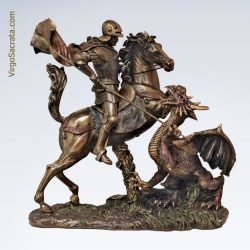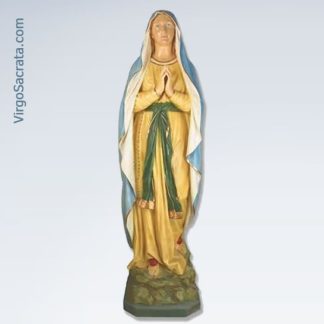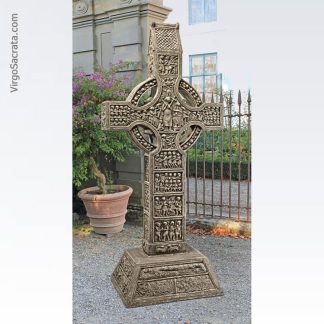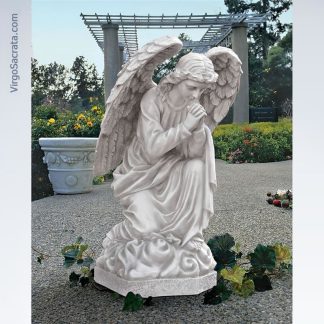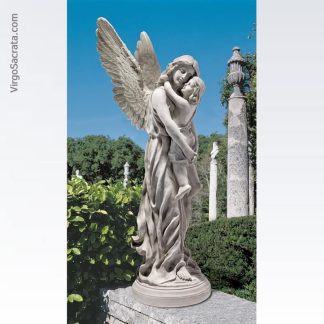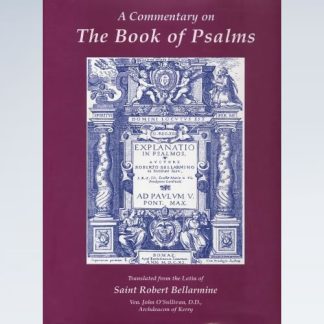Commentary on the Book of Psalms
After being called to the Cardinalate by Pope Clement VIII, Robert Bellarmine, one of only two Jesuit Doctors of the Church, found need for a reprieve from what were often tiresome temporal duties. Therefore, to exhaust his intellectual and devotional energies in writing, he prepared for posterity his very own commentary on each of the Psalms. Most of the Psalms of David, he said, read like a compendium of the whole of the Old Testament, a summation in poetic capsule. Others (Ps. 2, 21, 44 & 60) speak so clearly of Christ that they seem rather to belong to the Gospels. Yet, it is not the royal prophet, rather, it is the Holy Ghost, the true Author, Who desires to pluck this ten-stringed instrument of beauty called the Psaltery and bring our hearts to tears or jubilation as we sing praise.
Psalm 2 (sample): The vain efforts of persecutors against Christ and His Church
1 Why have the gentiles raged, and the people devised vain things?
2 The kings of the earth stood up, and the princes met together, against the Lord, and against his Christ.
3 Let us break their bonds asunder: and let us cast away their yoke from us.
4 He that dwelleth in heaven shall laugh at them: and the Lord shall deride them.
5 Then shall he speak to them in his anger, and trouble them in his rage.
6 But I am appointed king by him over Sion his holy mountain, preaching his commandment.
7 The Lord hath said to me: Thou art my Son, this day have I begotten thee.
8 Ask of me, and I will give thee the gentiles for thy inheritance, and the utmost parts of the earth for thy possession.
9 Thou shalt rule them with a rod of iron, and shalt break them in pieces like a potter’s vessel.
10 And now, O ye kings, understand: receive instruction, you that judge the earth.
11 Serve ye the Lord with fear: and rejoice unto him with trembling.
12 Embrace discipline, lest at any time the Lord be angry, and you perish from the just way.
13 When his wrath shall be kindled in a short time, blessed are all they that trust in him.
Explanation of the Psalm
1 “Why have the gentiles raged, and the people devised vain things?” David, recognizing in spirit the coming Messias, the many persecutions he was to undergo, to end in his most successful reign, commences by taunting his persecutors. “And the people devised vain things,” foreshadowing the folly of the Jews, “when they took counsel to destroy Jesus.”
2 “The kings of the earth stood up, and the princes met together, against the Lord, and against his Christ.” After saying in general, that both gentiles and people rose up against Christ, he now descends to particulars, and attributes the excitement not so much to the people as to those placed over them. The first of whom was Herod. Next the princes and the people, as the gospel has it, “All Jerusalem was troubled with him.” Then Pontius Pilate and the princes of that day. Then, after the passion and resurrection of our Lord, all the persecutions of the Roman emperors. So clearly foreshadowed is the Messias in this verse that the apostles, in the fourth chapter of the Acts, not only literally applied it to our Savior, but even the old Jewish Rabbis hold it to apply to the Savior the infatuated Jews are still foolishly looking out for! Observe the propriety of the words used here. The gentiles are said “to rage,” as if they were animals void of reason; while the Jewish people are made “to meditate vain things,” having taken counsel to destroy Jesus.
3 “Let us break their bonds asunder: and let us cast away their yoke from us”. The prophet assigns a reason for such rage and conspiracy; it was for fear they may be subjected to the law of Christ, so opposed to their carnal desires, and the wisdom of the world. These words are then, as it were, spoken by the kings and princes. The law here gets the name of bonds and yoke, because such it is, in point of fact, to the wicked; whereas, to the just, it is “sweeter than honey, and more desirable than gold and precious stones,” as we read in Ps. 18.
4 “He that dwelleth in heaven shall laugh at them: and the Lord shall deride them.” Here the prophet shows again how vain was the labor of the kings and princes in assailing the Christian religion. For the religion of Christ is of divine origin, and nobody can offer resistance to God. “He that dwelleth in heaven” is very appropriate, inasmuch as it shows that God sees all, is above all, and without any trouble can baffle all their counsels, and demolish all their plans. “Shall laugh at and deride them,” means that God in his wisdom, by means of signs and wonders, through the patience of the martyrs, through the conversion of nations and peoples, and through other means known to himself alone, will so confound them that they shall be an object of laughter and ridicule to every one. That we see fulfilled. The pagan and the Jewish priesthood are now ridiculed by all. They have neither temples nor sacrifice; and all the persecutors of the Church have met a miserable end.
5 “Then shall he speak to them in his anger, and trouble them in his rage.” He explains the manner in which God has held the enemies of Christ up to ridicule, not in language, but in the most grievous punishments and afflictions; for instance, Herod, stricken by the Angel; Maximinus, eaten up by vermin, and others. Strictly speaking, God is not subject to anger or fury; his judgments are always tranquil; but he is metaphorically said to rage and to be angry, when he punishes with severity, especially when the correction does not conduce to the salvation of the culprit. Such anger and fury belong to those who do not, like physicians, hurt to heal, but hurt to kill. Thus, when David says, “Lord, reprove me not in thy fury, nor correct me in thy anger,” he prays for the reproof and correction of a father, not of an enemy; and that it may tend to his salvation, and not to his detriment.
6 “But I am appointed king by him over Sion his holy mountain, preaching his commandment.” Having spoken of the rebellious sentiments and expressions of Christ’s enemies, he introduces the Redeemer now, as if answering them. I am appointed king, not by man, but by God, and therefore, man’s threats I regard not. I am ordained king on Sion, his holy mountain; that is, on his Church, the city built on a mountain, of which Jerusalem was the type; the principal part of which, and most beloved and sanctified by God, was Sion, as he says in Ps. 86, “The Lord loveth the gates of Sion beyond all the tabernacles of Jacob.”
7 “The Lord hath said to me: Thou art my Son, this day have I begotten thee.” Here is the beginning and the foundation of God’s decree. For to Christ, as being the true and natural Son of God, is due all power in heaven and on earth. Three generations are here alluded to. The first, when in the day of eternity, I God begot you God. The second, when, on the day of your birth, I begot thee according to the flesh, made you God-Man, without the seed of man, your mother remaining inviolate, without the stain of sin. Thirdly, I begot you today, that is, on the day of your resurrection, when, by my divine power, I restored you to life, and that a glorious and immortal one.
8 “Ask of me, and I will give thee the gentiles for thy inheritance, and the utmost parts of the earth for thy possession.” As if God the Father were to say: You my natural Son, the incarnation of my power raised from the dead, have just right to ask me for power over all nations as your inheritance, and the whole world, even to its remotest boundaries, as your possession of right. We have to observe here, that the word inheritance is frequently applied in the Scripture to one’s property, even though it may not have come to them by inheritance, and thus the people of God are called his inheritance, and he theirs. And as property was frequently divided among brothers by lot, and then measured by chains, the words inheritance, part, lot, chain, possession, became synonymous; two of them even are sometimes united, as, “The Lord is the part of my inheritance,” that is, the part that came to me by inheritance; and in another place, Deut. 32, “Jacob, the lot of his inheritance,” meaning that the people of Israel were the Lord’s inheritance, which he selected for himself, measured with chains, and separated from the inheritance of others. Thus all nations are here said to be the inheritance of Christ, as the words, “The utmost parts of the earth for thy possession,” evidently convey. We are to observe, secondly, that by the kingdom of Christ is meant his spiritual kingdom, that is, his Church, which was to be spread over the whole world. The meaning of the verse then is, that Christ was placed king over Sion, that is, over God’s people; but that his kingdom was not, like that of David or Solomon, confined to the kingdoms of Judea or Palestine, but was to extend over all nations, and to include all the kingdoms of the world, according to Daniel’s prophecy, chap. 2, infidels even included, for “All power on earth and in heaven is granted unto me,” and he is “appointed judge of the living and of the dead,” Acts 10.
9 “Thou shalt rule them with a rod of iron, and shalt break them in pieces like a potter’s vessel.” The extreme and most just power of Christ over his Church, and over all mankind, through which he can as easily reward the good and punish the wicked, as a potter can make and break the vessels of clay, is here indicated. In the first part, the iron rod expresses the most just, inflexible, and irresistible power of Christ; in the second, the vessels of clay expose the frailty of the human race. The word “Break them in pieces” does not imply that Christ will actually do so, but that he can do so if he wills; breaking their sins and infidelities in pieces, through his mercy, and from vessels of reproach forming them into vessels of honor; or breaking them in pieces in everlasting fire, in all justice, they having richly deserved it.
10 “And now, O ye kings, understand: receive instruction, you that judge the earth.” The prophet now exhorts the kings of this world on whom the people depend as their resistance to Christ has been in vain, to freely subject themselves to him, the true and supreme king of all kings; and as, generally speaking, from wrong judgment proceed wrong affections, he first exhorts them to correct their judgment, to understand the truth and be rightly informed. Then he exhorts them to correct their evil affections, and, instead of hating Christ, to begin to serve, to love, and to revere him. Hence he adds:
11 “Serve ye the Lord with fear: and rejoice unto him with trembling.” A wonderful admixture of love and fear, as if he were to say, blend love with your fear, and fear with your love. The Hebrew for “fear” signifies filial not slavish fear, and thus the meaning of the first part of the sentence is, serve the Lord as a son would his father; but also, when you exult as a child before him, forget not to fear him, as is beautifully conveyed in the second part of this verse.
12 “Embrace discipline, lest at any time the Lord be angry, and you perish from the just way.” The meaning of these words is, that the kings should not only correct their judgment and affections, and that they should be instructed and obedient but that they should do so with great fervor; because the Hebrew word implies that they should not only do the thing, but do it with all their might, their strength, and their desire, assigning a very cogent reason for it, “lest at any time the Lord be angry, “and you perish from the just way”. The most grievous punishment inflicted on princes is when God, on account of their sins, gives them up to the “reprobate sense,” Rom. 1, permits them to be deceived by wicked counselors, and do much evil, for which they are lost to this world and the next; such were Pharaoh, Roboam, Achab, and others, in whom the most grievous sins became the punishment of other sins, such being not a small slip from the straight road, but an entire loss and extermination of the path of justice.
13 “When his wrath shall be kindled in a short time, blessed are all they that trust in him.” The conclusion of the Psalm, in which the holy prophet pronounces how it may be inferred from the preceding, how good and useful it is to love God and serve him with one’s whole heart, for, in the day of judgment, which cannot be far distant, such people alone can have any confidence. He says, “in a short time,” to signify that the terrible day is shortly to come; for a thousand years are like yesterday that passed; nor can that be called long that has an end. “His wrath shall be kindled,” to give us to understand that the day of judgment will be exclusively a day of justice and revenge, leaving no place for mercy. “Blessed are all they that trust in him;” not that confidence will suffice—it will only when it is based on true friendship.

